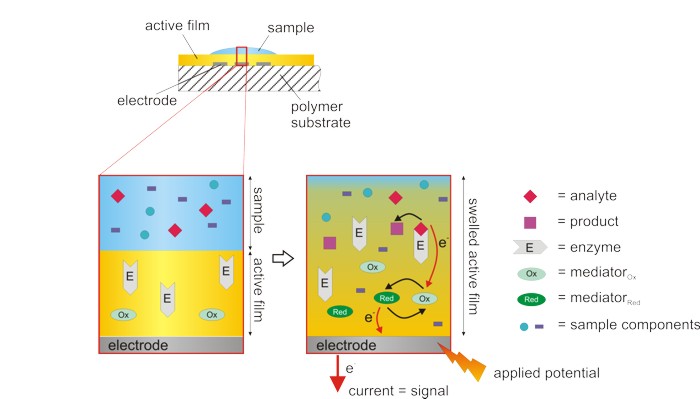Project description
Biosensors are used in many fields to measure the concentration of biological analytes, for example glucose. Single use biosensor strips can be used by the patients themselves to measure their blood glucose level. For the increasing number of diabetes patients a good control of their blood glucose level is essential for successful therapy.
One common type of sensor applies an amperometric measurement principle where an enzymatic reaction is followed by an electrochemical reaction to detect glucose. In these sensor films the active components are immobilized in a matrix consisting of various polymers and other additives.

Figure 1: Schematic drawing of an amperometric blood glucose sensor. Swelling of the film and enzymatic reaction are followed by an electrochemical reaction
The aim of this work is to characterize water absorption and water diffusion in these active layers. Model systems of different polymers and proteins aid in understanding the processes taking place in the complex films.
This is of great interest for the drying of the films during the manufacturing process but also plays a great role for the hydration of sensor films. The latter includes hydration of the active layer after application of sample liquid but also the unwanted hydration by water vapor from the air leading to film degradation. The mobility of the active components in the hydrated film is of great interest. Moreover a better control of water absorption of the sensor films and a better understanding of the effects absorbed water has on the layers is desired in order to prevent unwanted degradation.

Figure 2: Influence of water sorption on biosensor films.
The aim is to maximize the precision of the sensors over a wide range of environmental and storage conditions by achieving better control of the film properties. For the patients this means more safety when testing and simpler handling of the test strips.
This project is part of a cooperation with Roche Diagnostics.